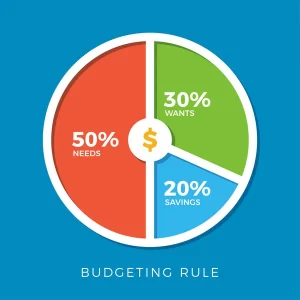Managing your money effectively is a crucial skill to have in today’s world. Whether you are saving up for a big purchase, paying off debt, or planning for your retirement, budgeting plays a key role in achieving your financial goals. However, even the most well-intentioned budgeters can make mistakes that hinder their progress. In this blog post, we will discuss ten common budgeting mistakes that you should avoid to master your money.
1. Not setting clear financial goals
Without clear financial goals, it’s easy to lose sight of where you want your money to go. Before creating a budget, take some time to sit down and write out your financial goals. Whether it’s saving for a down payment on a house or paying off student loans, having clear goals will help you prioritize your spending and stay motivated.
2. Not tracking your spending
One of the biggest mistakes people make when budgeting is failing to track their spending. It’s essential to record every purchase you make, no matter how small. By doing so, you’ll have a clearer picture of where your money is going and whether you need to make any adjustments to your budget.
3. Not having an emergency fund
Life is full of unexpected expenses, and without an emergency fund, these can easily derail your budget. Make it a priority to build up an emergency fund that covers three to six months’ worth of living expenses. Having this safety net will provide you with peace of mind and protect your budget from unexpected surprises.
4. Neglecting to account for irregular expenses
Many budgeters focus solely on monthly bills but forget to factor in irregular expenses such as annual subscriptions, car repairs, or medical bills. Create a separate category in your budget for these irregular expenses and set aside a small amount each month to cover them.
5. Underestimating your expenses
Sometimes we tend to underestimate our expenses, especially when it comes to discretionary spending. It’s crucial to be realistic and account for all your expenses when creating a budget. By acknowledging the true cost of your lifestyle, you can make informed decisions and prioritize your spending accordingly.
6. Not adjusting your budget as circumstances change
A budget is not meant to be static. Life changes, and so should your budget. Whenever you experience a significant life event such as a new job, a pay increase, or a change in living arrangements, reassess and adjust your budget accordingly. Flexibility is key to staying on top of your finances.
7. Relying too heavily on credit
Credit cards can be a useful tool if managed correctly, but relying too heavily on credit is a common budgeting mistake. High-interest rates and accumulating debt can quickly spiral out of control. Use credit responsibly and avoid borrowing beyond your means.
8. Not prioritizing savings
Saving for the future should be a top priority, even if your budget feels tight. Allocate a portion of your income to savings each month and automate it if possible. By making saving a habit, you will be better prepared for unexpected expenses, financial goals, and ultimately, financial freedom.
9. Failing to communicate and involve your family
If you share your finances with a partner or have children, it’s vital to involve them in the budgeting process. A lack of communication and shared goals can lead to financial strain and misunderstandings. Schedule regular budget meetings to discuss your financial goals and ensure that everyone is on the same page.
10. Not seeking professional advice when needed
Sometimes, no matter how hard you try, it’s challenging to achieve your financial goals on your own. Seeking advice from a financial planner or a budgeting expert can provide valuable insights and suggestions to help you overcome challenges and fine-tune your budgeting skills.
By avoiding these common budgeting mistakes, you will set yourself on the path to financial success. Remember that budgeting is a dynamic process, and it’s okay to make adjustments along the way. With dedication, discipline, and a conscious effort to master your money, you can achieve your financial goals and pave the way for a more secure future.




